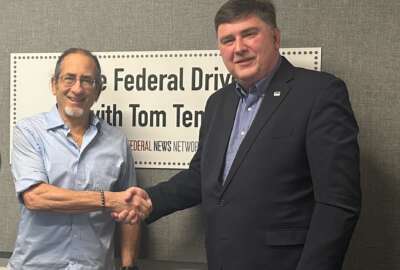DCAA tightens audit scopes, sees big returns
DCAA has added 500 employees over the last two years but is conducting fewer, though higher quality, audits each year. Director Patrick Fitzgerald explains the...
wfedstaff | June 3, 2015 8:57 pm
By Suzanne Kubota
Senior Internet Editor
FederalNewsRadio.com
Just a little over a year ago, Director Patrick Fitzgerald joined the Defense Contract Audit Agency right in the middle of heavy criticism for mismanagement of contract oversight. Since then, he’s implemented a framework that has helped them better manage their workload.
Fitzgerald tells Federal News Radio that part of their plan includes a sort of triage approach that does not look at every single contract. Instead, it focuses on paying close attention to higher-risk deals.
Fitzgerald said the framework was one of his first initiatives and then the DCAA had to make sure that the auditors findings and recommendations were considered.
The result, said Fitzgerald, is that “in 2010, our net savings was almost $3 billion dollars, and that’s real savings. I mean there’s a lot of numbers thrown around sometimes, but these are savings determined by the contracting officer saying that they paid less for goods and services as a result of basing their negotiations on our audit reports.”
There’s still “plenty of work still to be done,” said Fitzgerald. “We do have a formidable workload. We do all of DOD’s contracting audit and, in fact, we do the majority of all the contracting audit that’s done throughout the federal government. In 1990, we had one employee for every $19 million dollars of procurement funds. At the start of 2010, we have one employee for $49 million dollars of procurement funds. So we are really working hard to make sure that we allocate our resources in the highest risk areas to divest ourselves of lower priority work, or work that can be done by another organization, and then to grow our workforce.”
While the DCAA, said Fitzgerald, has brought on 500 auditors over the last two years, the agency is conducting fewer audits and reaping greater rewards. The difference, he said, is having good auditors.
“To be a really good auditor, you have to be curious. You have to ask that follow-on question. You have to kind of look at things and see if you can connect the dots. Does it all make sense?” And only then, said the director, can you figure out what the ground truth is.
Fitzgerald said the future looks pretty much like this past year. He said the agency will continue to focus on audit quality and make sure changes are understood and fully implemented, as well as to continue to grow the workforce and address workload.
“We’re also going to put more emphasis as we move forward on business systems, which is a way of trying to sort of get ahead of the curve a little bit,” said Fitzpatrick. The idea is to make sure contractors have good business systems in place, he explained, so you can prevent issues before they crop up, instead of doing audits in the backend in detection-mode.
The director said he wants to get out and talk with members of the workforce he hasn’t gotten to in his first year, “And also (spend time) talking to the government buying commands to make sure that they understand what we have changed and why, to make sure that we provide them a quality product and assist them in making sure that we get the best value for the warfighter and help them protect the taxpayers’ interests.”
This story is part of Federal News Radio’s daily DoD Report. For more defense news, click here.
Copyright © 2025 Federal News Network. All rights reserved. This website is not intended for users located within the European Economic Area.





